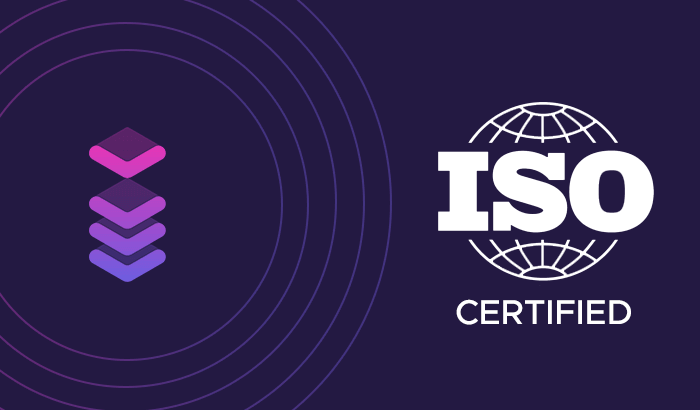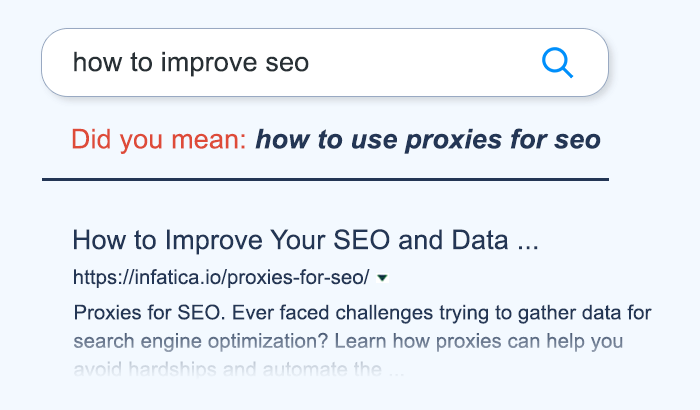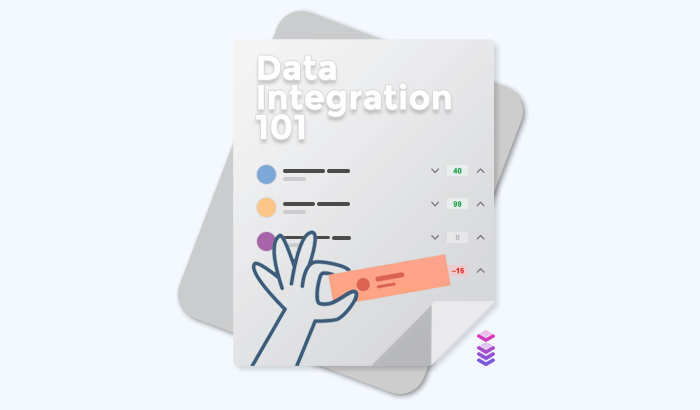

Anonymous proxies empower users to engage with the web on their own terms – without leaving a digital trail. Your online activities can trigger anti-bot systems, CAPTCHAs, and IP bans if not done carefully – and that’s where anonymous proxies come in. In this article, we’ll take a closer look at how they work – and how to pick the right anonymous proxy provider.
What Are Anonymous Proxies?
Anonymous proxies are a popular tool for preserving privacy and avoiding tracking. Unlike transparent proxies, which reveal the user’s original IP to the destination server, anonymous proxies ensure that identifying information is hidden. And compared to elite proxies – which go one step further by concealing the fact that a proxy is even in use – anonymous proxies strike a balance between privacy and accessibility.

Common use cases include:
- Private browsing: Avoiding behavior tracking, fingerprinting, and personalized ads.
- Bypassing geo-restrictions: Accessing region-locked content or services.
- Web scraping: Collecting data at scale without exposing infrastructure or IPs.
- Competitive research and SEO monitoring: Gaining insights anonymously.
How Anonymous Proxies Work
At the core, anonymous proxies serve as a middleman between a user and the internet. When a user sends a request – such as visiting a website or accessing an API – the request is first routed through the proxy server. The proxy forwards the request on the user’s behalf, using its own IP address instead of the user's. The response is then returned to the proxy, which passes it back to the user. This process achieves two key things:
- IP masking: The destination server sees the IP address of the proxy server, not the original requester.
- Request anonymization: In many cases, the proxy strips or modifies HTTP headers and metadata that could reveal identifying details.
By removing or obscuring headers like X-Forwarded-For (which can expose the original IP), anonymous proxies ensure that destination servers cannot easily trace activity back to the source.
Proxy Types Compared: Focus on Anonymity
| Proxy Type | IP Source | Anonymity Level | Detectability | Best Use Cases (for Anonymity) | Pros | Cons |
|---|---|---|---|---|---|---|
| Residential | Real devices (home users) | High | Low – Looks like real user traffic | Web scraping, ad verification, access to geo-restricted content | Hard to detect, rotates easily, mimics real users | More expensive, slower than datacenter |
| Datacenter | Cloud providers / data centers | Moderate | Medium to high – Easily flagged | General automation, low-risk scraping | Fast, affordable, scalable | Easily blocked on sensitive sites, shared IP ranges are more suspicious |
| Mobile | Cellular networks (3G/4G/5G) | Very high | Very low – Appears as mobile user | Social media management, mobile app testing, stealth scraping | Extremely hard to detect, highly trusted IPs | Most expensive, limited bandwidth |
| Static ISP | ISPs (assigned to servers, not homes) | High | Low – Residential-grade IP, server reliability | E-commerce monitoring, account management, long sessions | High trust + stability, fast like datacenter | Fewer IPs available, higher cost than datacenter |
Key Takeaways
- If maximum anonymity is your priority, mobile and residential proxies are the most effective.
- Datacenter proxies offer speed and affordability but are easier to detect.
- Static ISP proxies are a strong middle ground – offering residential trust with server-level performance.
Benefits of Using Anonymous Proxies
Anonymous proxies offer much more than just hidden IPs – they provide users and organizations with practical advantages in security, access, and data strategy. Here are some of the top benefits:
1. Enhanced Privacy and Identity Protection
Anonymous proxies prevent websites, trackers, and other third parties from seeing your real IP address or location. This shields users from targeted ads, behavioral profiling, and data collection practices that often happen without consent.
2. Bypassing Geo-Restrictions and Censorship
Many websites and services limit access based on the user’s location. Anonymous proxies can help users route traffic through IP addresses in different countries, unlocking access to content that might be restricted or blocked in their region.
3. Safer Web Scraping and Competitive Intelligence
When collecting data at scale, especially from protected or rate-limited websites, exposing your original IP address can lead to bans or CAPTCHAs. Anonymous proxies make it possible to:
- Rotate IPs across different regions.
- Reduce the risk of detection or blacklisting.
- Maintain consistent access to valuable web data.
This is particularly useful for SEO monitoring, pricing intelligence, content aggregation, and market research.
4. Avoiding Rate Limits and IP-Based Restrictions
Many platforms limit how many requests can come from a single IP. With anonymous proxies, users can distribute their requests across multiple IPs – bypassing rate limits and ensuring smoother performance for automated tools and bots.
5. Preventing Ad Fraud and Verifying Campaigns
Advertisers often use anonymous proxies to view ads as end users would see them – checking for proper placement, targeting, and potential fraud. This allows for unbiased ad verification from different locations and devices.
6. Secure and Controlled Web Access for Teams
For businesses, anonymous proxies can help regulate and secure how employees interact with the internet:
- Isolate internal tools from public networks.
- Mask internal infrastructure during testing or research.
- Access third-party platforms without exposing corporate IPs.
Why Free Anonymous Proxies Can Be a Security Risk
While free anonymous proxies might seem like a convenient way to browse privately or bypass restrictions, they often come with hidden dangers. In many cases, the cost of “free” is paid with compromised security, unreliable performance, or even data theft. Here’s why they’re risky:
1. Lack of Transparency
Free proxy services rarely disclose who operates them, how they handle user data, or whether they log your activity. Without clear privacy policies, there’s no guarantee your traffic isn’t being monitored, stored, or sold to third parties.
2. Potential for Data Harvesting
Some malicious proxy operators actively intercept user data – such as login credentials, personal information, or session cookies – as it passes through their servers. This makes users vulnerable to credential theft, identity fraud, and account hijacking.
3. No Encryption or HTTPS Support
Many free proxies don’t support encrypted connections (HTTPS). This means your data may be transmitted in plain text, exposing sensitive information to interception – especially dangerous on public Wi-Fi or unsecured networks.

4. Malware and Ads Injection
Some free proxy services inject ads or redirect users to malicious sites. Worse, others may install malware or tracking scripts directly into the web pages you visit – turning a simple proxy session into a potential security breach.
5. Unreliable Performance
Free proxies are often overcrowded and poorly maintained, leading to slow browsing or data extraction, frequent disconnections, and IP addresses that are already flagged or blacklisted. This unreliability can disrupt workflows, especially for scraping or automated tools that require consistency and uptime.
6. Legal and Ethical Concerns
Using free proxies with unclear origins can unintentionally involve you in illegal or unethical activity, especially if the proxy is part of a compromised device network (like a botnet). This can put you or your business at legal risk – even if you were unaware.
How to Choose the Right Anonymous Proxy Provider
With privacy becoming a priority for both individuals and businesses, the demand for anonymous proxies has grown – but not all providers are created equal. Choosing the right proxy partner can make the difference between seamless operations and blocked requests, or between safe browsing and potential exposure. Here are key factors to consider:
IP Pool Size and Diversity
A large, diverse pool of IP addresses ensures greater anonymity and flexibility. Look for:
- IPs across multiple geolocations
- Rotating and static options
- Residential, mobile, and datacenter coverage
The more IPs you have access to, the harder it is to trace activity back to a single source – and the easier it is to avoid bans or detection.
Speed and Performance
Proxy performance directly affects the speed of your browsing, scraping, or data tasks. Key indicators include:
- Low latency connections
- High uptime (99% or better)
- Minimal throttling under load
A high-performing proxy network is essential, especially for time-sensitive or high-volume automation.
Reliability and Uptime
Downtime can disrupt business-critical tasks. Choose a provider with:
- Proven service stability
- Real-time monitoring
- Failover mechanisms and IP redundancy
Reliable infrastructure is a must if you’re using proxies for enterprise scraping, e-commerce intelligence, or digital ad verification.
Support and Documentation
Technical support can be the difference between quick deployment and hours of troubleshooting. Look for:
- 24/7 customer support
- Clear documentation
- Responsive service-level agreements (SLAs)
Whether you're a developer integrating proxy rotation or an enterprise scaling your data operations, strong support ensures you're never stuck.
The Infatica Advantage
Working with a reputable provider like Infatica adds an extra layer of confidence. Here's what sets us apart:
- Large, ethically sourced IP pool across residential, mobile, datacenter, and ISP types
- High-speed infrastructure built for performance at scale
- GDPR-compliant processes that protect user privacy and data integrity
- ISO/IEC 27001 certified, signaling our commitment to global security standards
- Custom solutions tailored to your use case – whether it’s stealth scraping, SEO monitoring, or ad fraud prevention

Frequently Asked Questions
You can also learn more about:

SEO proxies are a must for scalable SEO tasks like keyword tracking, SERP scraping, and avoiding IP bans. Find out how proxies can boost your data collection efforts and keep your campaigns running smoothly!






